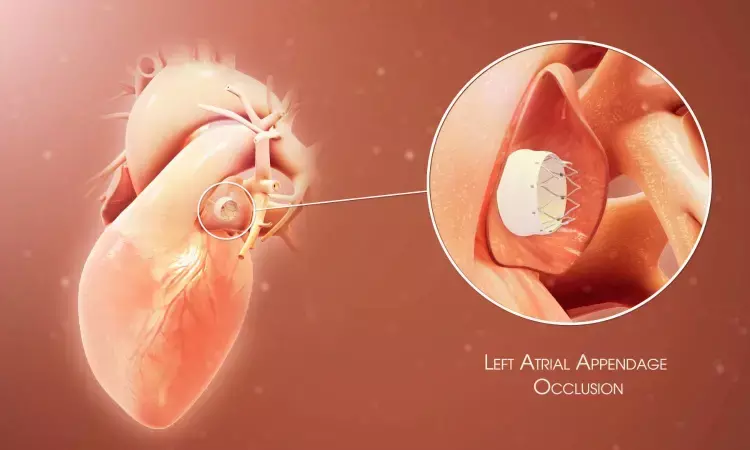- Home
- Medical news & Guidelines
- Anesthesiology
- Cardiology and CTVS
- Critical Care
- Dentistry
- Dermatology
- Diabetes and Endocrinology
- ENT
- Gastroenterology
- Medicine
- Nephrology
- Neurology
- Obstretics-Gynaecology
- Oncology
- Ophthalmology
- Orthopaedics
- Pediatrics-Neonatology
- Psychiatry
- Pulmonology
- Radiology
- Surgery
- Urology
- Laboratory Medicine
- Diet
- Nursing
- Paramedical
- Physiotherapy
- Health news
- Fact Check
- Bone Health Fact Check
- Brain Health Fact Check
- Cancer Related Fact Check
- Child Care Fact Check
- Dental and oral health fact check
- Diabetes and metabolic health fact check
- Diet and Nutrition Fact Check
- Eye and ENT Care Fact Check
- Fitness fact check
- Gut health fact check
- Heart health fact check
- Kidney health fact check
- Medical education fact check
- Men's health fact check
- Respiratory fact check
- Skin and hair care fact check
- Vaccine and Immunization fact check
- Women's health fact check
- AYUSH
- State News
- Andaman and Nicobar Islands
- Andhra Pradesh
- Arunachal Pradesh
- Assam
- Bihar
- Chandigarh
- Chattisgarh
- Dadra and Nagar Haveli
- Daman and Diu
- Delhi
- Goa
- Gujarat
- Haryana
- Himachal Pradesh
- Jammu & Kashmir
- Jharkhand
- Karnataka
- Kerala
- Ladakh
- Lakshadweep
- Madhya Pradesh
- Maharashtra
- Manipur
- Meghalaya
- Mizoram
- Nagaland
- Odisha
- Puducherry
- Punjab
- Rajasthan
- Sikkim
- Tamil Nadu
- Telangana
- Tripura
- Uttar Pradesh
- Uttrakhand
- West Bengal
- Medical Education
- Industry
Left Atrial Appendage Occlusion Lowers Stroke Risk in Cardiac Surgery Patients Without Atrial Fibrillation: Meta-Analysis

USA: A meta-analysis published in Circulation: Cardiovascular Interventions suggests that performing left atrial appendage occlusion (LAAO) during cardiac surgery may be advantageous, even for patients without preexisting atrial fibrillation (AF).
In the meta-analysis of patients without prior atrial fibrillation undergoing cardiac surgery, LAAO was linked to a reduced risk of cerebrovascular accidents (CVA), no change in the incidence of postoperative atrial fibrillation, and a significant overall survival advantage at the four-year landmark analysis.
"While these findings support the use of left atrial appendage occlusion (LAAO), the ongoing randomized LeAAPS trial (Left Atrial Appendage Exclusion for Prophylactic Stroke Reduction), LAA-CLOSURE trial (A Randomized Prospective Multicenter Trial for Stroke Prevention by Prophylactic Surgical Closure of the Left Atrial Appendage in Patients Undergoing Bioprosthetic Aortic Valve Surgery), and LAACS-2 trial (Left Atrial Appendage Closure by Surgery-2) will provide further insights into the effectiveness of LAAO in cardiac surgery patients with risk factors for atrial fibrillation and cerebrovascular accidents," the researchers wrote.
The role of LAAO in patients without a history of atrial fibrillation (AF) remains unclear. The meta-analysis by Massimo Baudo, Department of Cardiac Surgery Research, Lankenau Heart Institute, Main Line Health, Wynnewood, PA, and colleagues focused on individuals in normal sinus rhythm who underwent cardiac surgery, both with and without concurrent LAAO, to assess its impact on the incidence of cerebrovascular accidents.
For this purpose, the researchers conducted a systematic review from inception to December 2023, examining randomized and propensity-score studies that compared the incidence of CVA in patients without AF undergoing cardiac surgery, both with and without left atrial appendage occlusion.
Based on the study, the researchers revealed the following findings:
- Six studies met the inclusion criteria with 4130 patients: 2146 in the LAAO group and 1984 in the no-LAAO group.
- The risk ratio of postoperative AF was 1.05.
- The CVA rates at five years were 6.8±1.0% in the no-LAAO group and 4.3±0.8% in the LAAO group.
- The Cox regression analysis for CVA in patients undergoing LAAO reported a hazard ratio of 0.65.
- Landmark analysis at four years highlighted a significant difference in overall survival between no-LAAO and LAAO groups, 86±12.2% versus 89.6±11.0%.
In an accompanying editorial, Mark Mills, MBChB, from Liverpool John Moores University and Liverpool Heart and Chest Hospital, along with his colleagues, highlighted several limitations of the meta-analysis. They pointed out that only 17% of the patients included were from randomized controlled trials (RCTs), while the remainder were drawn from retrospective studies, which can be prone to biases and residual confounding. Furthermore, there was insufficient information regarding patients' baseline cardiovascular risk—typically assessed using the CHA2DS2-VASc score or similar tools—for most participants, as well as a lack of details on the types of antithrombotic therapies administered.
Mills et al. concur that, while awaiting the outcomes of ongoing randomized trials, decisions regarding LAAO during cardiac surgery should be made on an individual basis.
“Surgical LAAO may be justifiable for patients who meet the strict inclusion and exclusion criteria set forth in the two RCTs included in the meta-analysis by Baudo et al., although these studies are not definitive due to their small sample sizes,” they noted. “For those who do not meet these criteria, enrollment in one of the aforementioned RCTs, if eligible and accessible, is the preferred option.”
Reference:
Baudo M, Sicouri S, Yamashita Y, Senzai M, McCarthy PM, Gerdisch MW, Whitlock RP, Ramlawi B. Stroke Prevention With Prophylactic Left Atrial Appendage Occlusion in Cardiac Surgery Patients Without Atrial Fibrillation: A Meta-Analysis of Randomized and Propensity-Score Studies. Circ Cardiovasc Interv. 2024 Sep 11:e014296. doi: 10.1161/CIRCINTERVENTIONS.124.014296. Epub ahead of print. PMID: 39258365.
Dr Kamal Kant Kohli-MBBS, DTCD- a chest specialist with more than 30 years of practice and a flair for writing clinical articles, Dr Kamal Kant Kohli joined Medical Dialogues as a Chief Editor of Medical News. Besides writing articles, as an editor, he proofreads and verifies all the medical content published on Medical Dialogues including those coming from journals, studies,medical conferences,guidelines etc. Email: drkohli@medicaldialogues.in. Contact no. 011-43720751


